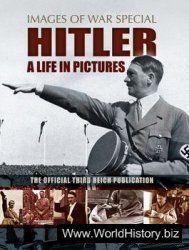Two days after becoming president, Johnson, who had disapproved of the overthrow of Diem, nonetheless affirmed determination "to win the war."203 Although Johnson positioned himself in the 1964 election as a moderate against the Republican candidate, Barry Goldwater, he also encouraged planning for escalation afterward. Johnson refused to become the first president to lose a war. He dreaded abandoning the South Vietnamese to what he saw as ruthless Communism. In the summer of 1964, the US Navy assisted South Vietnamese raids on North Vietnam. During the night of August 2, North Vietnamese torpedo boats in the Tonkin Gulf fired at the U. S.S. Maddox. Two nights later, jittery crews reported another attack. The next morning there was no evidence of a second assault. No matter. Johnson was looking for an opportunity to hit both the North Vietnamese and Goldwater, who was accusing the administration of timidity. Johnson ordered an airstrike on North Vietnam. He sent to Congress a resolution, prepared months before, authorizing broad military actions. Passed by the Senate with only two dissenting votes, the Gulf of Tonkin Resolution became Johnson’s legal basis for escalating the war. In February 1965, LBJ responded to an attack on a US airbase with "Rolling Thunder," a sustained bombing campaign against North Vietnam.
In July 1965, Johnson multiplied the number of US troops in South Vietnam. As he later told Senator Eugene McCarthy, "I know we oughtn’t be there, but
I can’t get out. I just can’t be the architect of surrender.”204 To avoid surrender, Johnson kept increasing US troops in Vietnam until they reached a half-million in early 1968. Despite White House predictions that victory was near, the North Vietnamese and NLF in February 1968 launched the devastating Tet offensive. Enemy troops surged through most South Vietnamese cities, nearly breaking into the US embassy in Saigon. As US public opinion turned against the war, LBJ convened a bipartisan group of Cold War veterans. The "Wise Men” warned that the war was tearing apart society at home and failing in Vietnam. Johnson called for a limited bombing halt to jumpstart negotiations. He also launched what would become Richard Nixon’s policy of replacing US troops with South Vietnamese forces. On March 31,1968, Johnson announced he would not run for re-election.
Johnson’s hope for an historic legacy of beneficial reforms at home and abroad was only one of the dreams soured by the Vietnam War. The conflict undermined US prestige and reduced the funds available for foreign aid. In Latin America, the Alliance for Progress shifted priorities from development and equality to foreign investment. Kennedy’s lip service to democracy was replaced by a blatant support for supposedly stable, military-run governments. In Africa, US tacit acceptance or support of Portuguese colonialism, the all-white government in Southern Rhodesia, and a Congolese dictatorship supported by white mercenaries alienated most leaders. Johnson lacked Kennedy’s personal interest in Africa and Latin America. Moreover, he grew so preoccupied with Vietnam that he neglected other issues. Protests aggravated Johnson’s defensiveness. During an interview with New York Times columnist Cyrus R. Sulzberger, Johnson kept thumbing through a folder of papers while asserting, "I’m spending most of my time on Europe these days.” The president insisted his administration had a global agenda, "despite Vietnam, despite what 'intellectuals’ and the New York Times and those people in Georgetown say.” But when he tried to talk with reporters about these other matters, "all they did was to keep whining Veetnam, Veetnam, Veetnam,” protested the president, himself imitating a whining baby. Sulzberger recorded that after this performance, Johnson "suddenly _ opened the folder of papers he had been browsing over - and started to read a cable sent him by [Ambassador Henry Cabot] Lodge in Saigon.”205
The Vietnam War had other consequences. In much of the world, repugnance for the war fostered broader skepticism and eroded US power - as illustrated by the worsening gold drain. In Western Europe, increasing numbers of people grew horrified as television brought home images of heavily armed Americans and napalm-dropping jets terrorizing Vietnamese villagers. De Gaulle cited the war as further reason for European independence fTom both superpowers. In 1966, he pulled France out of the integrated NATO military command. This veteran of the pre-Cold War era looked toward a post-Cold War reunification of "Europe from the Atlantic to the Urals."206 Spending on the war prompted a March 1968 panic in the international gold market. The dumping of dollars for gold forced the Johnson administration to close the gold window of the US Treasury to all holders of dollars except other governments, which could be pressured to hold onto their greenbacks. Meanwhile, Japan boomed with orders to supply both the United States and North Vietnam. One ofthe many ironies ofthe war entailed China. Although the containment of China was cited as justifying the war, China itself retreated into self-imposed isolation with its cultural revolution.




 World History
World History









